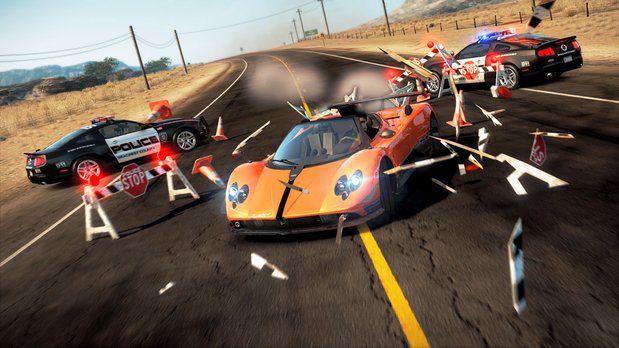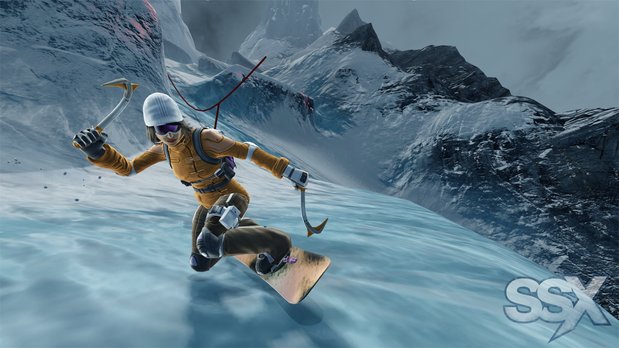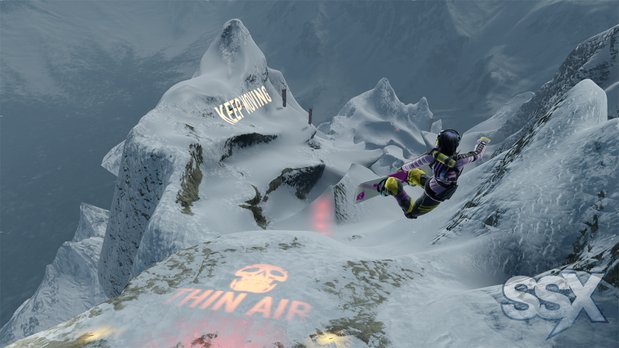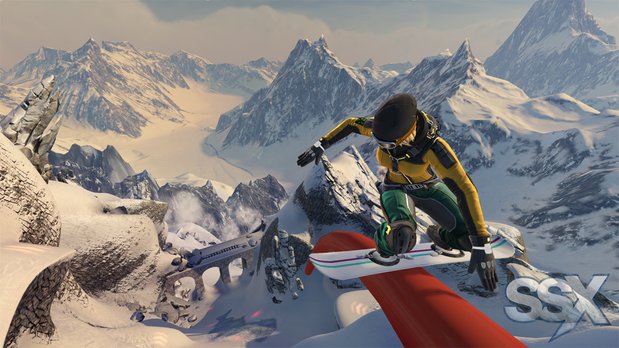Box Score: The power of SSX compels two studios to evolve online gaming
A startling moment turns into a perfect opportunity for two development studios to craft gaming’s next wave

Box Score is a weekly column that offers a look at sports games and the athletic side of the industry from the perspective of veteran reviewer and sports fan Richard Grisham.
“Oh #$&@!”
That was Todd Batty’s initial reaction to the revolutionary Autolog feature in Need for Speed: Hot Pursuit. At that moment, Todd and his team at EA Sports were knee-deep in building the next generation of SSX. As the creative director, he’d long since planned for asynchronous online play – the ability to compete against and track friends even when you’re not online together, called Ridernet – to be a major tenet of his game. When he saw what their corporate brethren at Criterion Studios shipped with Hot Pursuit, though, things got interesting. Quickly.

Above: The unlikely inspiration for SSX's Ridernet
“Autolog came out and we were like, ‘This is the way to do it,’” remembers Batty. “ We saw a bunch of things in there that we hadn’t even considered yet.”
Seeing a concept you’re working on get delivered by someone else in a slightly different way – before the world even knows much about your game – can be jarring. For some people, it would be devastating. Batty took it as an opportunity to make something good even better.
“I think that Criterion is one of the most talented developers in the entire industry,” Batty says. “We spent a bunch of time talking to the guys, and they were super-helpful. They even came here all the way from the UK a couple times to answer our questions and help collaborate with us.”
Weekly digests, tales from the communities you love, and more

“We definitely had it on our drawing board from very early on,” he recalls. “We looked at a game like SSX, playing against each other, trying to set the highest trick scores, we thought about ‘How does that translate into an online world?’ We immediately dove into asynchronous play. Every time I go down a drop, I can go to any drop in the game and set a trick score. Then, we’ll upload a ghost of that run to our servers; any time one of my friends logs on, whether I’m online or not, they can dive in, see the ghost of my run, follow it and figure out my line. (We) compete head to head, even though I’ve long since turned off my console. The goal of bringing asynchronous play with our dev team was there long before we saw Autolog.”
Batty is one of the most passionate people in the business, and it shows when he gets into what he feels makes this aspect of SSX so special. “Ridernet puts your friends square at the heart of the experience,” he says. “It does a lot of the cool things that Autolog does and some cool things that it doesn’t. We’re really proud of it and it is absolutely prevalent throughout the entire SSX experience. You can’t get away from it; it’s always there to hold your hand and show you where the next place and where something else fun to do is.”

One of the ways that it extends the original Autolog features comes as a direct result of playing Hot Pursuit.
“We call it the Tom Monroe feature,” laughs Batty. “A whole bunch of people on our dev team, when Need for Speed: Hot Pursuit with Autolog came out, started playing it. We all got caught in that compulsion loop. We were all playing the heck out of it, and then one of the young designers on our team [Monroe] who’s just too good at video games for his own well-being, took the game home one weekend and he crushed us all. He put scores up everywhere, times up everywhere that were just absolutely unfathomable and unbeatable. Interestingly, over the next few days, we all stopped playing Need for Speed: Hot Pursuit.”
Batty considered the demotivation, and acted on it.
“So we added something in SSX,” he says. “At any given point in time, with any one of your friends, you can just press a single button and hide them. It wipes them off the face of every single leaderboard in your game. You vote them down, you vote them off the island. At any given point in time, you can unhide them, too. It’s a really cool thing; people want competition to be both accessible and relevant. A friend who provides me inaccessible competition is not a good thing. I love voting people off the island, and I do it all the time.”

Whether or not the Ridernet and Autolog concepts continue to be extended in individual titles, or if the next generation of consoles establishes an overall framework for every game to tap into remains an open question. Regardless, the lightning-fast pace of social media interactions has had a direct impact on Ridernet.
“We looked at social media and social communications today; everything now is being driven to be able to happen at your own schedule,” Batty states. “We’ve gone from instant messaging to writing on each other’s Facebook walls. We’ve gone from half the time not even calling people on our cellphones anymore, we just simply text them. Everything today is being driven today by convenience. Online console gaming really to date has yet to make that same evolutionary leap as a lot social media has. I think that we’re on the verge of it. Need for Speed Autolog cracked it open, and we’re trying to run with it from there.”
Richard Grisham has been obsessed with sports and video games since childhood, when he'd routinely create and track MicroLeague Baseball seasons on paper. He currently lives in New Jersey with his wife and four-year old son, who he'll soon be training to be an NFL placekicker. As a freelance journalist and writer, his work has appeared in GamesRadar, NGamer, and 1UP.


